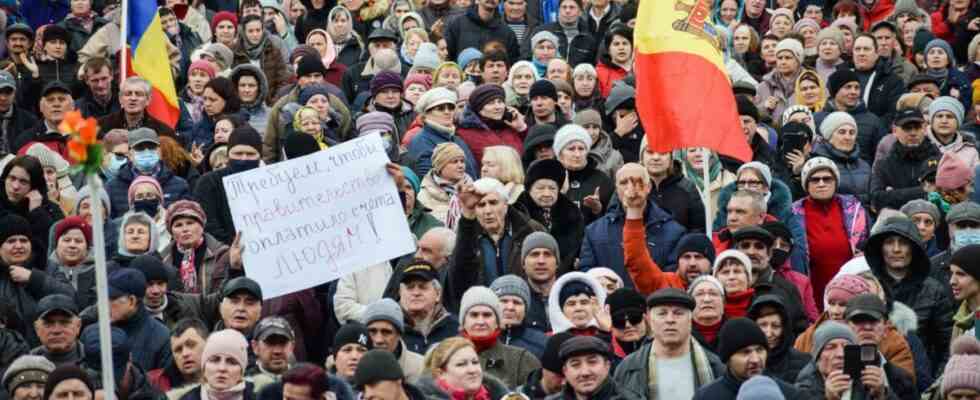Last Sunday’s mass protests against the pro-European government and President Maia Sandu were just the latest climax in a period of tension, threats and warnings for the Republic of Moldova.
Thousands of people who had been carted into the capital by bus – mainly pensioners and villagers – had demonstrated in Chişinău that the state should pay their high energy bills in full as a result of the Russian war of aggression and rampant inflation among citizens had accrued.
The protests were orchestrated by a recently launched “movement for the people” demanding the resignation of Sandu and newly elected prime minister Dorin Recean. Behind it is said to be the party of Moldovan Ilan Shor, who lives in Israel, and holds six of the 101 seats in parliament. According to the government and the Moldovan secret service, it serves Russian interests in the former Soviet republic.
Russian cruise missiles have repeatedly flown over Moldova
The party of the former mayor of Orhei had already organized demonstrations against the government last autumn, which at the time brought banning proceedings before the constitutional court because Shor was “pursuing the interests of a foreign power and undermining Moldova’s state sovereignty”.
Shor is also accused of being involved in a gigantic theft almost ten years ago in which 900 million euros disappeared from the Moldovan banking system; he was therefore sentenced to seven and a half years in prison, but fled to Israel during the appeals process. Shor is now also on the US sanctions list. At the same time, former President Igor Dodon – financed by the Russian secret service FSB – is said to have worked for Moscow, which he denies.
The protests, which are demanding more financial aid for citizens and the resignation of the government, are probably just one of the many problems facing a country that has been drawn more directly into the maelstrom of Russia’s war of aggression against Ukraine than any other.
Last Tuesday, for example, shortly before President Maia Sandu traveled to the Munich Security Conference, the airspace over Ukraine’s neighbor was briefly closed – because an “unidentified object” had been sighted in the sky. In the past few weeks, Russian cruise missiles shot down by warships in the Black Sea have repeatedly flown over the airspace of the small country; Chişinău protested in vain in Moscow.
Sandu and her team are also very concerned about information intercepted by the Ukrainian secret service: Moscow is said to be planning to send saboteurs and inciters disguised as demonstrators into the country and to orchestrate attacks on state institutions and take hostages. The goal: to overthrow and replace the pro-European government with a Moscow-friendly regime.
Sergey Lavrov threatens Moldova could share Ukraine’s fate
Moldova is facing hybrid attacks, said the new prime minister, Recean, who was the president’s security adviser until his election by parliament in mid-February. Russian Foreign Minister Sergey Lavrov recently threatened that Moldova could soon share the fate of Ukraine: In an interview with a Russian TV station, Lavrov said that Sandu was pursuing an explicitly anti-Russian agenda.
To prevent interventions, a football match between the club FC Sheriff from the separatist region of Transnistria and the club FK Partizan from Belgrade was held in an empty stadium on Thursday. The authorities feared the arrival of Serbian saboteurs disguised as fans who could be used in the course of the recent mass protests for the Russian coup plans.
Due to the latest developments in Munich, Sandu therefore thought aloud about ending neutrality. Given what Russia is doing to Ukraine, neutrality cannot save and defend their country. This is only possible if other states respect the sovereignty of the Republic of Moldova. Last but not least, Moscow’s propaganda is to blame for the fact that approval for further rapprochement with the EU is currently declining.

